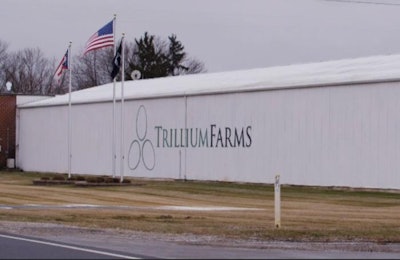
An executive vice president with Trillium Farms recently acknowledged he was naïve to a human trafficking ring in which children were taken out of Guatemala and forced by an outside company to work at a Trillium egg production facility in Ohio.
But the company has learned from its mistakes, and is taking extra precautions to make sure no such human tragedies occur again, he added.
J.T. Dean, Trillium Farms executive vice president, was one of many people involved in the PBS Frontline documentary, “Trafficked in America,” which was televised last week and is currently available for view on the PBS website.
Quick overview of ‘Trafficked in America’
The documentary centers around a case in which 10 people, including eight teens, were enticed to come to the United States to help pull their families out of poverty. But those minors were not properly vetted by the U.S. Health and Human Services (HHS) agency, and were released to those who brought them to America, the documentary revealed. In 2014, authorities uncovered the human trafficking ring, and in 2016, the group’s ringleader, Aroldo Castillo-Serrano was sentenced to 15 years in prison. Others were also imprisoned for their involvement.
However, no charges were ever filed against Trillium, as prosecutors felt that Trillium was unaware that those young workers were being victimized. It ended its contract with the firm shortly after the raid was conducted.
“Trafficked in America” reporter Daffodil Altan spoke to numerous sources, including an underage worker, families of workers in Guatemala, one man convicted in the case, a man who has since been arrested and awaits a trial, and that man’s son – who is also a brother of someone incarcerated in connection with the case.
Also interviewed was John Glessner, past CEO of Ohio Fresh Eggs, who was “Jack DeCoster’s right-hand man” when the Trillium facility was operated by DeCoster.
Altan showed a deeper look into what happened in the heartbreaking situation that included forced labor and forcing them to live in substandard housing. Those who expressed any resistance to handing over the majority of their earnings to the traffickers were subjected to threats of death to their family members, the documentary revealed.
Trillium expresses regret, working to prevent recurrences
Dean told Altan he was “stunned” when he learned a forced labor situation had reached a Trillium facility. “My first reaction was that I couldn’t believe anything like this would be happening on our farms or in our environment,” he said.
“Looking back on it, I was naïve,” added Dean. “I did not understand what I understand today of how prevalent (trafficking) is around the country. And I am responsible for the day-to-day operations and it happened here on my watch, so I do have a duty to do everything we can to ensure this doesn’t happen again and to spread the word so that others are aware of this.”
Since Trillium didn’t specifically supervise those workers, but rather just supervised whether the work assigned to the contracted vendor got done, that arrangement made it easier for traffickers to put their workers to task at the Trillium facility.
Trillium is moving forward and, as Dean said, has taken efforts to learn and teach about the problem of human traffickers and forced labor. During several recent industry meetings, sessions on how to prevent human trafficking have been held at the request of Trillium.
The company has reduced, but not completely eliminated the use of third-party companies, but according to the documentary, is now partnering with a leading anti-trafficking organization to implement reforms and train employees.
While the story is sad, “Trafficked in America” is a good segment to watch. The documentary was proof positive of how important it is that companies – whether they are affiliated with the egg industry or not – need to leave no stone unturned when working with companies that provide contract services.
















